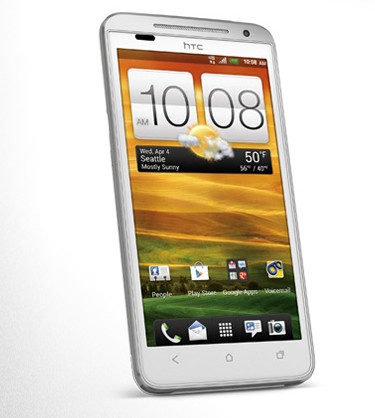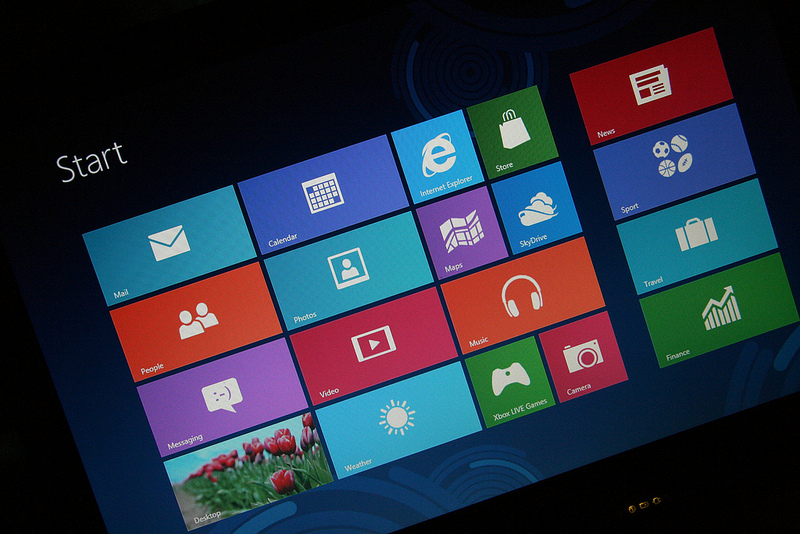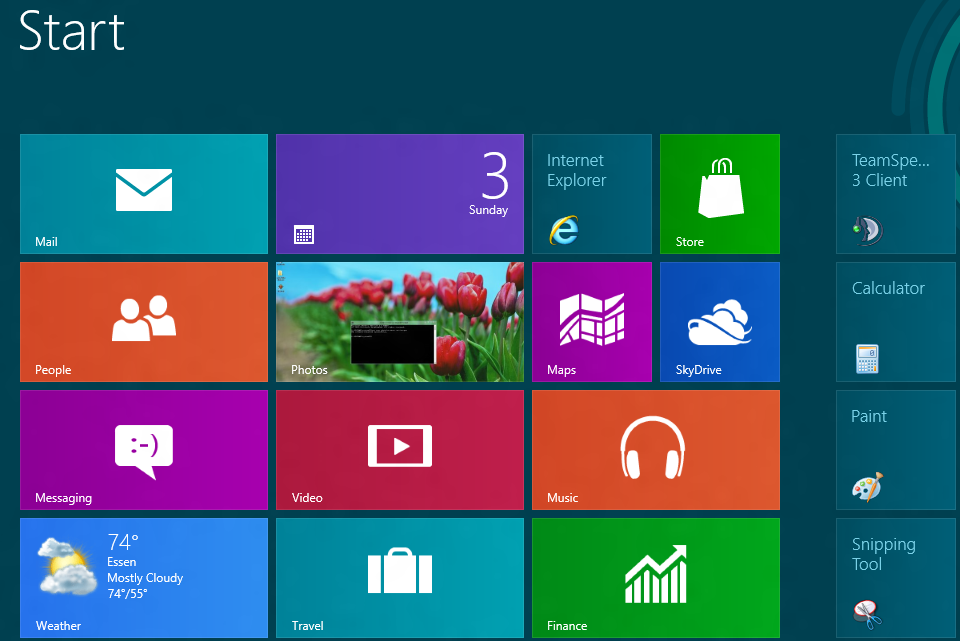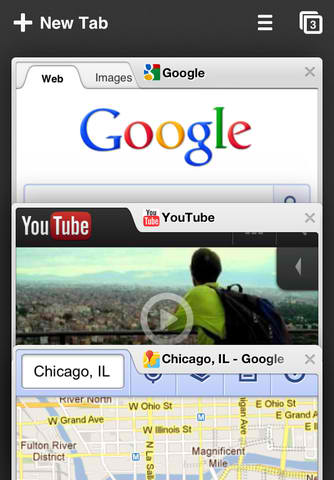
IDC Appcelerator survey reveals what app developers love and hate the most
International Data Corporation (IDC), in partnership with mobile platform company Appcelerator, announced results of a global survey of Appcelerator developers on Tuesday, The survey created a detailed profile of developers' outlook on the market, with a particular focus on development for enterprise.
At a high level, the survey showed that developers believe Apple is leading the charge in the enterprise mobile deployment; see Android only as a consumer opportunity; are excited about remote cloud service integration; and are cautiously optimistic about Windows 8 and Windows RT tablets; but see Windows Phone as disappointing.

HTC EVO 4G LTE review
With the roll over to LTE from WIMAX, Sprint has taken the path to have Android 4.x on all its new 4G Android devices, the first being the Google flagship Galaxy Nexus. But one of the first third-party LTE Androids is the update to the HTC EVO line. The original HTC EVO 4G became the top-selling launch-day phone on Sprint back in 2010. Minor updates to the line followed, such as the EVO 3D, as well as a Star Wars-branded White R2D2 model. So how does the new HTC EVO 4G LTE, an Ice Cream Sandwich (Android 4.0.3) using HTC Sense 4.0 UI stack up to the family title in 2012?
The EVO 4G LTE is only 0.35 inches thick, compared to the 0.5 inches of its predecessor, with a form factor of 5.3 inches by 2.7 inches. The screen is a sharp 4.7-inch Capacitive Super-LCD 2 -- 312 dots per inch with 720 x 1280 pixel resolution at 24-bit (16.7 million) color. To watch HD video is a joy; its easy and fair to say it is impressively crystal clear.

EU trustbusters tire of Microsoft tricks, probe Windows 8
Just days after opening a new Microsoft investigation, European antitrust regulators have broadened the scope. The software giant already faces possible multi-billion dollar sanctions for non-compliance with a 2009 agreement. European Windows users are supposed to get browser choice, but a ballot box mysteriously disappeared when Windows 7 Service Pack 1 released in February 2011. The European Competition Commission has since added Windows 8 to the investigation.
The agreement, which expires at the end of 2014, requires that a browser choice screen must appear in all copies of Windows, including version 8. The browser choice screen allows a dozen alternate third-party browsers to be shown as options for installation besides Internet Explorer -- when starting IE each time, or starting Windows for the first time. Microsoft faces new allegations the browser choice screen is missing from the final version of Windows 8 and Windows RT.

Will Novell-Microsoft ruling make developers digital serfs to platform lords?
Today marked another win for Microsoft while under the watchful eyes of Judge J. Frederick Motz, who dismissed the antitrust lawsuit brought by Novell. The case stems from a complaint that Microsoft deliberately withdrew namespace extension APIs for Windows 95, knowing they were key to Novell's application, with the intent of thwarting software application competition. Specifically to give an edge to the Microsoft Office suite over third-party products.
At the time, 1994, WordPerfect had 30 percent productivity suite market share worldwide. WordPerfect had developed its rich user base since the days of MS-DOS and was more widely used than Microsoft's own competing upstart Office suite, which had only been released a few years earlier.

Sprint 4G LTE service goes hot in 15 cities in southern United States
Sprint announced today it has flipped the switch on 4G LTE coverage in 15 cities in the Georgia, Kansas, Missouri, and Texas markets.
Running on the 1900 MHz spectrum, Sprint's LTE will not be as fast as competing networks of Verizon running on the 700 MHz Band 13 frequency or AT&T running at 700 MHz band 17 and 2100/1700 MHz band 4 frequencies. Also Sprint's service is limited by the backhauls to its towers, as well as limited to using only two 5 MHz bands for uplink and downlink. This will only allow speeds of 2Mbps to 3 Mbps on Sprint's current LTE network, far less than AT&T or Verizon.

Anonymous supports Greenpeace, hacks oil companies
In what the loosely-tied hacker group Anonymous calls #OpSaveTheArctic, over 1,000 email credentials and Hash checks of email passwords from five major international oil giants were released. The companies targeted included Exxon Mobil Corporation, Shell Petrochemical Corp., and BP Global; as well as the Russian based Gazprom Corporation and Rosneft Petroleum Corp.
The data dumped on anonymous text post website Pastebin includes 317 emails and their unsalted MD5 hashed passwords from a hack on Exxon mobil from June. Added July 13th: a further 724 emails and hashed passwords from BP, Gazprom, and Rosneft, and 26 emails with clear-text passwords from Shell Petroleum. Also listed: all of the internal mail system information, detailing routers, operating system type, database details and server hardware vendor. Further detailing of the type of data gained is available at the DC/Nova/Maryland network security blog site NovaInfoSeco.com.

Got iPad? Get Google+
In May, Google+ debuted for iPhone in Apple's app store, soon followed by an app for Android. Two weeks ago, at the I/O developer conference, Google updated the Android app again, with a lighter tone design similar to the actual Google Plus web pages as well as design support for tablet UI. The wait is over, Apple tablet users. Google+ for iPad is now available in the iTunes App Store.
The app includes a boatload of new features across the board, such as the above mentioned support for tablets, with rotation orientation. It now supports the use of 'pinch' gesture to expand posts to add comments. You can also use the 'two fingers to drag' gesture to drag posts in your stream to reshare. Enabled now is the ability to attach instant upload photos to any post you make.

Gartner says 2012 IT spending will surpass $3.6 trillion worldwide
Information Technology is now a part of every day life. Every office will be networked, with data on demand. And with the push for easy access location independent records, paper files will be made redundant. But Gartner's newest IT spending forecast shows the march to digitalization slowing -- on pace to reach $3.628 trillion in 2012 and $3.786 trillion in 2013. That is only an estimated 3 percent and 4.4 percent increase compared to the the $3.523 trillion spent last year in 2011, which was 7.9 percent growth compared to 2010.
Computer Hardware in 2011 accounted for $404 billion in spending with a 7.4 percent growth. In 2012, Gartner estimates spending will reach $420 billion, only 3.4-percent growth. Gartner projects by 2013 that will go to 6.6 percent growth at $448 billion.

Microsoft announces Windows 8 for October retail release
At the 2012 Microsoft Worldwide Partner Conference in Toronto, Canada, Microsoft CFO and Chief Marking Officer Tami Reller finally revealed the time when we can expect Windows 8 to hit the market.
During her keynote presentation, Reller talked about the new features of the Windows platform and how it will work with its deployment partners. Of course, the bigest news was that the final build of Windows 8 will reach RTM (release to manufacturing) in the first week of August.

You CAN recover stolen or lost gadgets, but it ain't easy
We carry expensive gadgets on us all the time now. On a flight we listen to music on an iPhone or read on a Kindle ebook reader. We watch movies on an iPad or play Angry birds on an Android. But what do you do if you misplace that device, or worse it is stolen? What recourse do you have to get it back, if any? Who do you call, or contact for help, and what can you do to be prepared beforehand to help in getting it back yourself?
In this article I will do a quick rundown of types of devices that are most commonly lost or stolen and go over some basic rules of the road beforehand with any new gadget or device you have.

Do network neutrality rules violate Verizon's freedom of speech?
June 2nd marked the return shots fired by telecommunications juggernaut Verizon against the Federal Communications Commission for fines the FCC leveled on them in regards to network neutrality. In a legal brief filed in Washington DC at the United States Court Of Appeals, Verizon and regional cell phone provider MetroPCS formally appealed.
Verizon claims that the FCC forcing them to keep all data traffic equal priority is unconstitutional -- that equal priority of data is an affront to carrier's freedom of speech.

What if ... Apple just now released the first iPhone?
Fourth in a series. To commemorate iPhone's fifth-anniversary, we present several stories looking at its debut and colorful history -- so far. This one is different from the others, as it's a work of fiction, looking at a possible, alternative timeline.
Apple, the trendsetter of design and function has made good on their WWDC 2012 promise. Today marks their release of what they dub the very first smart phone, the iPhone. But the big question: Are they a little too late to the game now? The new phone marks a 180-degree turn from the past statements of Apple cofounder Steve Jobs, who asserted Apple is, or was, a computer, media and services company first.

Google comes clean: Yes, your kernel panic is Chrome's fault
The last thing Google needs following its exciting developer conference (ending today) is for something sharp to pop its big fun beach ball called Chrome. The search and information giant scrambles to fix a bug that sends the newest MacBook Air into kernel panic. That's "crash" to you Mac layfolk.
Starting just shortly after the release of Sandy Bridge-powered Macbook Airs earlier this month, troublesome reports appeared on Apple’s support communities where, owners complained their slender machines crashed to the point of kernel panic -- and frequently.

ADOBE FLASH IS DEAD -- on mobile!
From the halls of Adobe come the bells of impending death tolls. The master slayed its dragon. Flash is dead. The words from Adobe today in a public blog post mark another major blow to Flash, at least in the mobile form. The company announced that it will no longer develop Flash for Android after Android 4.0. There will be no certified implementations for Android 4.1.
Earlier this week, during its developer conference, Google officially unveiled the newest Android version -- Jellybean -- which replaces the stock browser with Chrome, for which Flash already isn't available. Google released Chrome for Android beta, supporting on v4 Ice Cream Sandwich, in February. From that perspective, the announcement, and timing, isn't super surprising.

Google polishes iOS, adds Chrome trim
In its second day keynote at the I/O 2012 developer confab, Google announced it has brought the Chrome browser to Apple's iOS.
Macquarie analyst Ben Schacter recently released a report that stated that Apple may already be reviewing the app, estimating that it should be released second quarter of this year. However, due to the restrictions in Apple's developer terms of service, it's not going to be the full Chrome experience.

